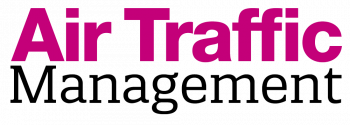Frankfurt Airport is usually bustling with air traffic. The air traffic controllers based there must be able to oversee and manage complex traffic situations at all times. Therefore, after general basic training, they receive training specifically tailored to the airport. If they later work independently as an air traffic controller, they have to complete further training at regular intervals in order to maintain the validity of their licence for the site.
However, the coronavirus pandemic hasn’t just had a massive impact on air traffic – the vital initial training of air traffic controllers as well as continuation training have faced new challenges. The reduced volume of air traffic makes realistic training difficult and therefore considerably delays trainees from successfully completing their training and revalidating their license.
DFS Aviation Services has a state-of-the-art 360° training simulator available for use by customers worldwide at its DAS Aviation Academy (DAS A²). In this challenging situation for DFS, a mutual decision was made to prepare air traffic control trainees for busy traffic at Frankfurt Airport using this simulator.
The coronavirus training concepts had to be coordinated with the Federal Supervisory Authority for Air Navigation Services. The DFS Aviation Services simulator also had to be adapted for this new concept. This meant accurately replicating all the technical air navigation factors and eventualities at Frankfurt Airport. The final exam, the so-called “check out”, was started in Tower Frankfurt and continued in the DAS simulator with realistic test scenarios. This ensured that the air traffic controllers were suitably qualified despite the reduced air traffic as a result of the pandemic.
Sibylle Rau, Head of Tower and Approach Frankfurt at DFS is very pleased with this fantastic result: “Creating new training concepts was a challenge because the extent of the impact of the coronavirus pandemic was unknown and has led to a completely new air traffic situation. But it was definitely worth the effort! We are now in a position to be able to continue to train air traffic controllers irrespective of future developments. Even if air traffic is temporarily reduced, we always need new staff, for example, due to the departure or retirement of current personnel.”
Sabine Räk, Head of Training at DFS Aviation Services, adds: “The new concept allows our colleagues to remain current and shows us all new possibilities for modern, remote training, which could shape the future of air traffic control training globally. Digital and simulation-based training is an important topic in our sector, and one that has gained particular attention during the coronavirus pandemic. It provides flexibility for air traffic control worldwide.”
Similar adapted training concepts with the simulator have been in place since autumn 2020 for the revalidation of unit endorsements of air traffic controller licences, and this was pursued further in 2021 due to the continuing, changed air traffic situation. And it is not just for Frankfurt, other DFS tower locations, such as Hamburg, Bremen, Cologne and Nuremberg, are also being supported.
